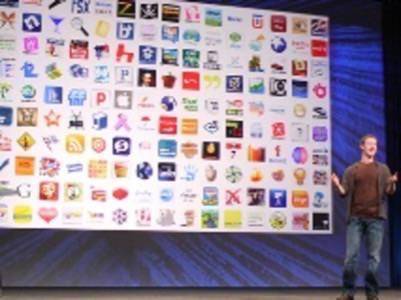With the news coming out of F8 this week, it was hard to not get caught up in the enthusiasm for Facebook Connect, the new authentication methodology which will allow you to login to third-party web sites using your Facebook ID and port your friend graph from Facebook with you. On the one hand, you have to admit this is revolutionary. The web will be transformed from the still (somewhat) closed system it is today, to a massively social experience – it’s the “always logged-in internet.” On the other hand, the company bringing this web to us is Facebook, the same people who had to be told by their users why Beacon was a huge mistake. Do you trust Facebook to control the next iteration of the web?

Facebook Connect
As Facebook Connect grows and is adopted by more sites, it will push your social graph to the far corners of the web, out to places where it doesn’t even exist today – that is, places like the corporate web sites whose own attempts at creating social networks of their own were a waste of money. These businesses never needed a social network – they need to tap into your social graph and Facebook Connect gives them the power to do so.

Through the seamless Facebook Connect integration, sites can access your Facebook account details and friend graph and move that data back and forth between their site and Facebook. For example, people commenting on a blog using the Moveable Type platform will be able to login via Facebook Connect. Their comment will link to their Facebook profile and the commenting activity itself will make its way back into your activity feed. On Digg, another site adopting Facebook Connect, you can login with your Facebook ID and your digging activity is returned to Facebook, too.
Why Facebook Connect Could Win This
A large majority of today’s more mainstream users have a Facebook account and still, the site grows. Although MySpace still remains king in the U.S., Facebook is quickly closing that gap, having grown 40% over the last year. But worldwide, Facebook officially caught up to MySpace in April 2008 in terms of monthly worldwide visitors – around 115 million per site per month (source: Comscore).

Although Facebook Connect is just one example of this new trend involving the portability of our social graphs, it already has a leg up on both Google’s Friend Connect and MySpace’s implementation of OpenID.
With Google’s Friend Connect – not even fully launched yet – they’re relying on the power of their brand. But although the site is a household name now, that doesn’t mean that everyone has a Google account or a friend graph there. Like Microsoft and their “Passport” (now Live ID) initiative, the largest source for collecting user accounts is via their webmail offerings. For those that don’t use Gmail or any of Google’s other customized services requiring a login, there’s no value to Google’s Friend Connect because there’s no friend graph there. You would be creating an account to have the sake of the account. This doesn’t appeal to anyone.
As for OpenID, as much as we’re thrilled to see it finally making its way onto huge web sites like MySpace, it will still have to overcome the “user education” issue. A mainstream web user will not know what an OpenID is (and will often not take the initiative to find out). But they will be able to wrap their heads around Facebook Connect. “Login with your Facebook ID” – that’s pretty much as straightforward as it comes. It’s unfortunate, but you have to acknowledge the fact that if OpenID can’t dumb down their concept enough for the “everyman,” it may not be able to reign dominant across the web. Like Dick says on the Identity 2.0 blog: “…frankly — typing in a URL is pretty geeky to most users.”
Why Facebook Connect Could Be Dangerous
Unlike with OpenID, Facebook Connect put the power of the social web into the hands of one company. One private company. Not only that, but a company that’s known for rolling out changes without so much as a warning to its users then having to react to the ensuing uproar.

Even the introduction of the Mini-Feed was protested upon launch. And Beacon – the advertisement system that sent data from external web sites back to Facebook, telling your friends about your purchases on 40+ partner sites – was literally a fiasco. It launched before there was a way to even opt-out.
In the past, user privacy on Facebook seemed always seemed to be an afterthought. Although their direction appears to be changing a bit now – recent updates to Facebook today make sure to cover how your privacy is going to be affected – it’s only because they’ve learned to cater to their users’ demands. It’s harder to believe that it’s because they genuinely care.
Facebook has always known that their value – that is, their monetary value – is selling off bits and pieces of your privacy to advertisers. The “real you” on Facebook is a holy grail for marketers. Now, with the power to spread that to sites across the entire web, Facebook will need to figure out how to cash in. In the process, they may again make another misstep. The problem is that this time it might not be something as innocuous as the video you rented at Blockbuster that finds its way back to your Facebook profile. As more of the corporate and business-oriented web adopts Friend Connect, the greater the chance for privacy intrusion.
Conclusion
What do you think about this new social web? Do you see Facebook Connect as having a chance to win this all? Or will it be Google Friend Connect or OpenID? Or perhaps all three can co-exist peacefully?










